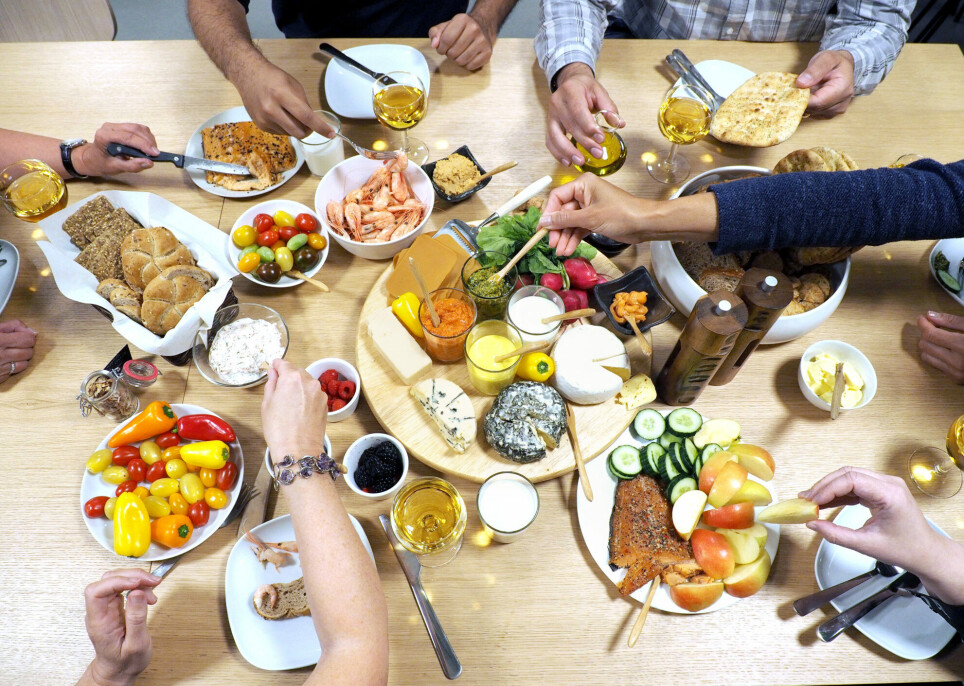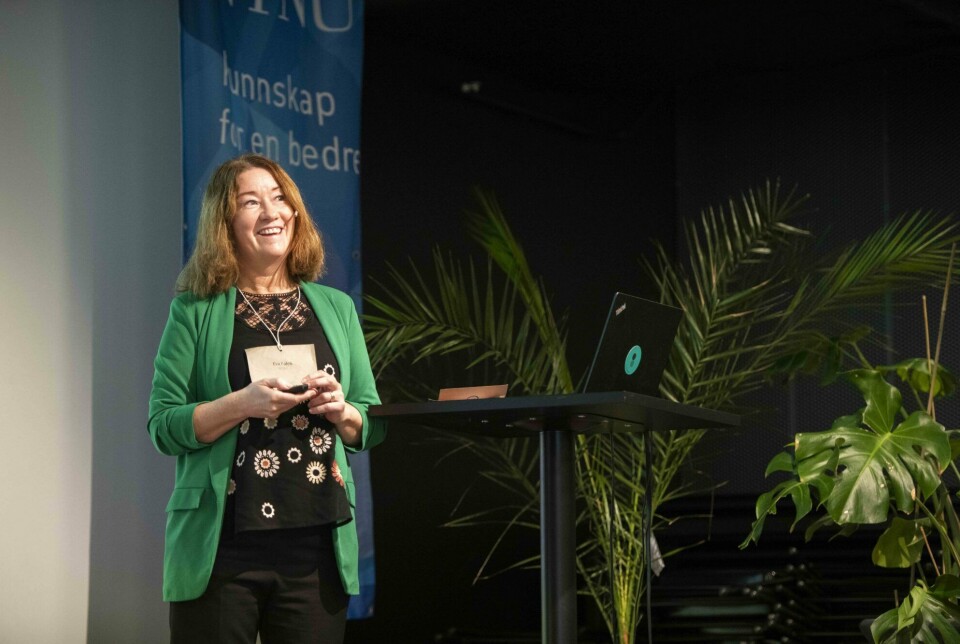THIS ARTICLE/PRESS RELEASE IS PAID FOR AND PRESENTED BY NTNU Norwegian University of Science and Technology - read more

Sustainability and animal welfare concern young people the most
What are people’s attitudes towards food, sustainability, new foods and food additives? Researchers have found some answers.
Our food system – from production to transport, sales and consumption – is a complex beast. Many aspects of the food system are good, but a lot is also wrong with it, according to Eva Falch, an associate professor at NTNU’s Department of Biotechnology and Food Science.
NTNU, SINTEF and the Western Norway University of Applied Sciences (HVL) have collaborated in surveying people’s attitudes towards food, sustainability, new foods and additives.
Participants included 40 people in the 20-55 age group.
How the consumer thinks and behaves
Interviews from the survey show that people have become more concerned about sustainability.
Eva Falch says that we know from before that women tend to be more aware that food should be healthy than men are.
“The younger generation is the most concerned with sustainability and animal welfare. Young people are also more open to innovation and new foods, and expressed that they are more willing to change their eating habits,” she says.
The researchers are not satisfied with questionnaires.
“We’re trying to gain deeper insight into how consumers think and behave. For example, it’s easy to get consumers to buy an item once. The challenge is to get them to make a repeat purchase and change their habits. That requires us to understand consumers better,” Falch says.
Information on food packaging is important
The interviews show that consumers are concerned about sustainability, but that they do not really know what constitutes sustainable food.
People want to see more research and better, reliable information, preferably on food packaging.
“Words and how information is expressed are important. We don’t get negative reactions from consumers when we tweak our choice of words to describe the raw ingredients we want to use as food. Leftover fish sounds better than fish waste. Pictures and storytelling are important – but a nice name isn’t enough,” Falch says. “The focus groups have taught us that consumers are sceptical of food claims. A front-page advert in a newspaper is enough to doom a product if you hide where a food product comes from and the consumer is suspicious of its origin."

What will consumers accept?
The researchers’ survey included looking at what consumers accept in the way of additives in food products.
“People eat too little fish and don’t consume the recommended dose of omega-3 fatty acids. We recorded that the focus groups accepted the idea that fish products containing low levels of fish oil, for example fish cakes, could be enriched with omega-3. The same applied to dried products and soups,” Falch says.
SINTEF Ocean and SINTEF Industry collaborated on a project, in which they extracted proteins from fish skins and fish that today are simply thrown away. The fish oil that contains omega-3 fatty acids also comes from leftover fish.
The proteins are used to encapsulate the fish oil and protect it against undesirable odour, taste and rancidity. The aim is both to utilise more of the fish and to contribute to better public health.
“As well as this works, it’s still important for consumers to accept what the product consists of. We learned that vegetarians, and especially vegans, may have barriers to fish oil in general. If fish oil is added to plant-based products, it means that vegans will no longer eat them. But if the omega-3 is obtained from microalgae, vegans will more readily accept them,” Falch says.
We throw away a third of all food
Food waste accounts for six per cent of greenhouse gas emissions. More than a third of all food is thrown away. The UN’s goal is to cut food waste by half.
“In reality, the loss is greater. A lot of what’s thrown away was never intended for food. This could be used in food production, animal feed or in fertiliser and we’d achieve full utilisation, a circular bioeconomy,” Falch says.
Further, she says that food waste also contributes to food costing more, more energy and water being consumed, soil depletion and loss of biodiversity.
"Fortunately, we’ve gained a greater awareness of food waste,” she says.
Other sale types
Buying food directly from the farmer, farm store sales, markets and food festivals have become more common. Another way for consumers to reduce food waste and save energy is by adapting their purchases to seasonal foods.
Falch also points out that sales depend on volume and standards. The degree of utilisation is limited by consumers expecting food products to be the same every time.
The EU to set standard for animal welfare
Animal welfare is also part of sustainable food systems. Falch says that NTNU is closely following the development of a new set of regulations for animal welfare that the EU is working on. The regulations will have consequences both for Norwegian farmers and the slaughterhouses.
The EU is also working on a new common European food labelling system, which Falch expects will replace the various labelling schemes we have today.
The EU’s strategy is for consumers to be able to make informed choices and for them to have a larger selection of healthy products to choose from.
The EU will introduce labelling that identifies nutritional value, date, origin and sustainability. The nutritional labelling will be introduced first.
“Full transparency about food products is probably good advice for the Norwegian food industry in the future. Especially products that have been developed with advanced technology need a solid scientific basis to be accepted,” Falch says.
Read more content from NTNU:
-
This determines whether your income level rises or falls
-
Why is nothing being done about the destruction of nature?“We hand over the data, but then it stops there"
-
Researchers now know more about why quick clay is so unstable
-
Many mothers do not show up for postnatal check-ups
-
This woman's grave from the Viking Age excites archaeologists
-
The EU recommended a new method for making smoked salmon. But what did Norwegians think about this?





































